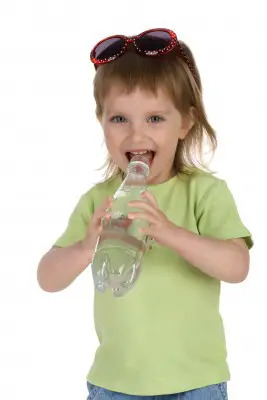Adults drink caffeinated beverages all the time, so why can’t kids? Marcie Beth Schneider, M.D., a pediatrician who practices in Greenwich, CT, weighs in on why kids shouldn’t consume energy drinks.
 In short: No. Marcie Beth Schneider, M.D., a local pediatrician who co-authored a clinical report published last May in the journal “Pediatrics” on the effects of energy drinks on kids, explains why.
In short: No. Marcie Beth Schneider, M.D., a local pediatrician who co-authored a clinical report published last May in the journal “Pediatrics” on the effects of energy drinks on kids, explains why.
Should parents allow their children to drink energy drinks like Monster and Red Bull?
No. If you’ve ever looked at the labels on these drinks, it’s very difficult to discern what’s actually in [them]. We know that there’s caffeine, [and] we know that caffeine is addictive—we know it raises your blood pressure and heart rate [and] it’s associated with insomnia. For kids who are anxious, it can increase their anxiety. For kids who have heart issues, it can play into those. Some energy drinks may contain more than 500 milligrams of caffeine, which is equivalent to the caffeine found in 14 cans of caffeinated soda.
But the issue is not just the caffeine. What makes energy drinks even more of an issue than coffee is that energy drinks have all this other stuff in them. There’s a protein called taurine and a chemical called guarana, which boost the power of the caffeine. It’s these other ingredients that really make the energy drinks a no-no. We have kids who are growing and kids who have brains that are developing and it just seems completely unwise to put something in them that is almost like a mega-stimulant…why would you do that?
Can the caffeine in these drinks contribute to hyperactivity in children?
I don’t know if I would call it hyperactivity, but it’s a stimulant. That’s really the reason most of these kids [end up] having difficulty sleeping.
Why might some parents think it’s okay to give their children energy drinks?
Parents will say, “Well I use this every day, why can’t they?” and it’s because of their little bodies. Kids are not fully grown, they are [still] developing, and they’re smaller than adults, so it has a greater effect on them. You know, one of the biggest risks of being on a real stimulant for ADD is growth issues.
[And] it doesn’t appear like there’s anything wrong. You can just go into a store and buy it, there’s no black box, there’s no warning. I mean, there’s nothing that says that there could be a potential hazard for you. So why would they think that it’s bad?
Are these drinks okay for kids in moderation?
There is no role [for] these energy drinks in kids. The risk is just too big.
Marcie Beth Schneider, M.D., FAAP, FSAM, founded Greenwich Adolescent Medicine in Greenwich, CT. She is board-certified in pediatrics and adolescent medicine. Dr. Schneider graduated from Brown University and attended medical school at the Albert Einstein College of Medicine in the Bronx. She did her pediatric residency training at Montefiore Medical Center in the Bronx and her fellowship training in adolescent medicine at North Shore University Hospital on Long Island.
Also see:
Too Much Fruit Juice May Be Bad For Your Child’s Health
How To Monitor Your Child’s Bone Growth






















